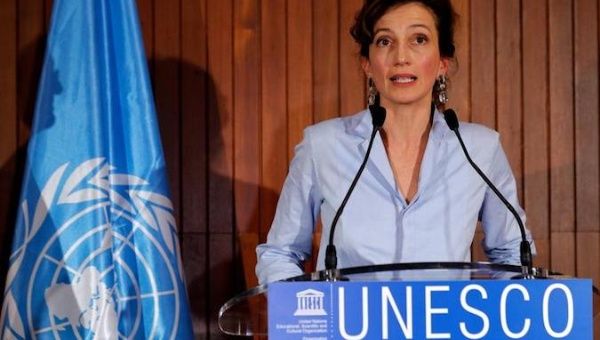
Published 7 January 2020
In October 2017, the U.S. announced its withdrawal from UNESCO, claiming it needed to be reformed and was dominated by an alleged anti-Israeli trend.
The warning from the head of the UN Educational, Scientific and Cultural Organization came in response to Trump’s threat on Saturday to attack 52 sites in Iran, some of which pertain to the culture of the country, if Tehran were to retaliate over the killing of Iranian Gen. Qasem Soleimani, commander of the Quds Force of the Islamic Revolutionary Guard Corps, in a U.S. airstrike on Friday.
On Monday, Azoulay met with Iranian ambassador to UNESCO, Ahmad Jalali, to address the situation in the Middle East and threats against its heritage, according to a statement released by the organization.
The UNESCO boss recalled that both the United States and Iran had signed conventions to protect cultural property in case of conflict and world heritage that meant that they could not “deliberately” take any measures to damage the cultural and natural heritage of other signatory countries.
She also pointed out that UN Security Council resolution 2347, which was adopted unanimously in 2017, condemns acts of destruction of cultural heritage.
In a message posted on Twitter, Trump had said that if Iran attacks U.S. interests his country has “We have … targeted 52 Iranian sites (representing the 52 American hostages taken by Iran many years ago), some at a very high level & important to Iran and the Iranian culture.”
“If Iran strikes any Americans, or American assets… Iran itself, WILL BE HIT VERY FAST AND VERY HARD,” the U.S. president had threatened.
On Sunday, the U.S. Secretary of State Mike Pompeo denied that the president intended to strike Iran’s cultural heritage and said that Washington would only act against Iran under the protection of the law.












 Posted in
Posted in 











